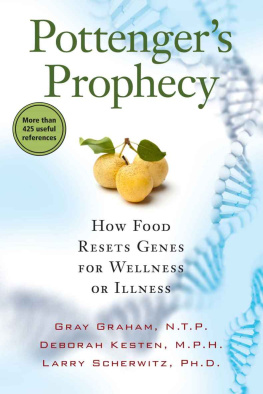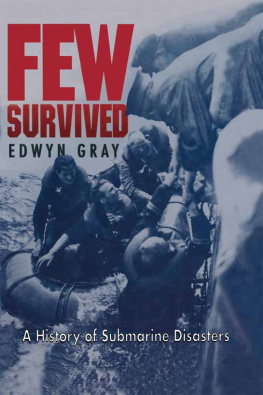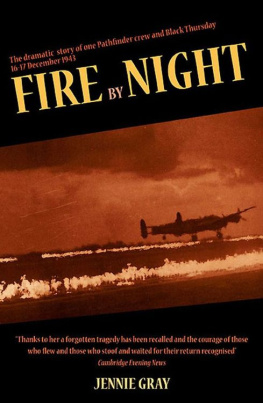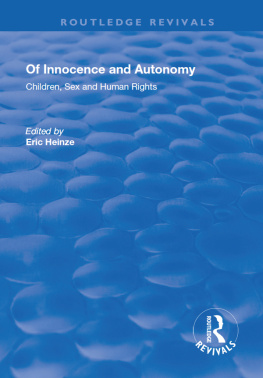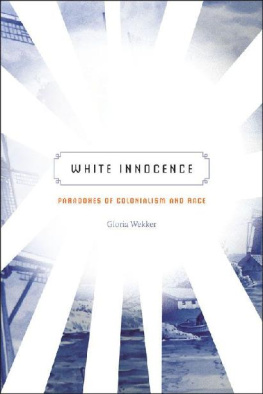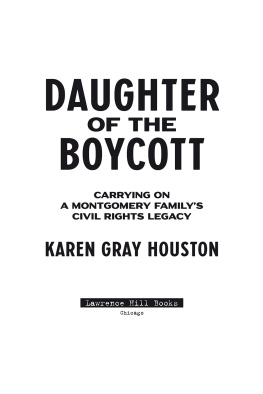Gray - Civil Rights in the White Literary Imagination: Innocence by Association
Here you can read online Gray - Civil Rights in the White Literary Imagination: Innocence by Association full text of the book (entire story) in english for free. Download pdf and epub, get meaning, cover and reviews about this ebook. year: 2013, publisher: University Press of Mississippi, genre: Politics. Description of the work, (preface) as well as reviews are available. Best literature library LitArk.com created for fans of good reading and offers a wide selection of genres:
Romance novel
Science fiction
Adventure
Detective
Science
History
Home and family
Prose
Art
Politics
Computer
Non-fiction
Religion
Business
Children
Humor
Choose a favorite category and find really read worthwhile books. Enjoy immersion in the world of imagination, feel the emotions of the characters or learn something new for yourself, make an fascinating discovery.

- Book:Civil Rights in the White Literary Imagination: Innocence by Association
- Author:
- Publisher:University Press of Mississippi
- Genre:
- Year:2013
- Rating:5 / 5
- Favourites:Add to favourites
- Your mark:
- 100
- 1
- 2
- 3
- 4
- 5
Civil Rights in the White Literary Imagination: Innocence by Association: summary, description and annotation
We offer to read an annotation, description, summary or preface (depends on what the author of the book "Civil Rights in the White Literary Imagination: Innocence by Association" wrote himself). If you haven't found the necessary information about the book — write in the comments, we will try to find it.
Civil Rights in the White Literary Imagination: Innocence by Association — read online for free the complete book (whole text) full work
Below is the text of the book, divided by pages. System saving the place of the last page read, allows you to conveniently read the book "Civil Rights in the White Literary Imagination: Innocence by Association" online for free, without having to search again every time where you left off. Put a bookmark, and you can go to the page where you finished reading at any time.
Font size:
Interval:
Bookmark:
CIVIL RIGHTS IN THE WHITE LITERARY IMAGINATION
Innocence by Association
Jonathan W. Gray

www.upress.state.ms.us
The University Press of Mississippi is a member of the
Association of American University Presses.
Copyright 2013 by University Press of Mississippi
All rights reserved
Manufactured in the United States of America
First printing 2013
Library of Congress Cataloging-in-Publication Data
Gray, Jonathan W.
Civil rights in the white literary imagination: innocence by association / Jonathan W. Gray.
p. cm.
Includes bibliographical references and index.
ISBN 978-1-61703-649-1 (cloth: alk. paper)
ISBN 978-1-61703-650-7 (ebook) 1. American literature
White authorsHistory and criticism. 2. Civil rights in literature. 3. Race relations in
literature. 4. African AmericansCivil rightsHistory20th century. I. Title.
PS173.N4G68 2013
810.93520396073dc23 2012031363
British Library Cataloging-in-Publication Data available
Introduction
PERFECT UNIONS
Chapter one
THE LOOK BACK HOME FROM A LONG DISTANCE
Chapter Two
THE APOCALYPTIC HIPSTER
Chapter Three
THE WHOLE HEART OF FICTION
Chapter Four
NEGROES, AND BLOOD, AND HORROR
Epilogue
PERFECTING INNOCENCE
So many people helped me bring this book to fruition that I barely know where to begin. Back in the days when I was a teenager, Rosemarie Garland-Thompson got the ball rolling with love and patience. Around the same time Charles Verharen taught me that the perfect is the enemy of the good. Michael Szalay disabused me of a notion by asking a tough question, and suggested a path that led me to today. Louis Menand forced me to contend with the rich tapestry that is American culture and showed me the importance of writing clearly. He sets a high bar. Robert Reid-Pharr cajoled and encouraged me during the beginning and middle of this process, and taught me the importance of attention to detail, a lesson I have learned incompletely. Jon-Christian Suggs was calm, considered, and helpful with matters of literature and the law. Thanks for giving me a shot. David Blight provided me with the means to reorient this project and connect it more surely to the threads of race and history that run throughout the cultural life of the United States. Benjamin Talton blazed the trail, blessing me with his unwavering confidence, words of encouragement, and a stiff drink. Keota Fields ran with me step for step until out paths diverged, and I advance in large part due to the pace he set. Thank you. Minkah Makalani showed up suddenly and left too soon, but read a chunk of the manuscript and offered valuable feedback. Thanks, cousin. James de Jongh offered material and spiritual support throughout. Jeanne Theoharis helped me understand the changes the civil rights movement wrought in the North, and proved a generous presence. Glenda Carpio made putting the time in easier at the beginning, and remains a model and an inspiration. David Yaffe suggested a name for the project, and, once I flipped it, it sufficed. Thanks for that. Richard Perez nipped at my heels, keeping me focused on the finish line. Slow down! Baz Dreisinger provided the support that only a matey can. Good looking out. Ta-Nehisi Coates kept me at my desk by showing and proving every day. Damn son. Cheo Vidal was always full of ideas when it was time to kick back. Thanks for helping me keep the batteries charged. Ruth Wilson Gilmore showed up too late to help with this project, but serves as a lodestar. Thank you for reminding me the world can change.
I also want to thank the people whose presence in my life, tangential though it may often be, continues to instruct, inspire, and motivate. They include: Allistarr Durant, Lopa Basu, Juan Battle, Moustafa Bayoumi, Nikhil Bilwakesh, David Brothers, Janice Cable, Michael Cano, Dan Charnas, William Jelani Cobb, Zach Davis, Ashley Dawson, Michael Dumas, Jennifer Egan, Eric Falci, Allyson Foster, Mikhail Gershovich, Karen Green, Peter Hitchcock, Rachel Ihara, Bassey Ikpi, Candace Jenkins, Geoff Klock, LHeureux Lewis-McCoy, Maha Malik, Anne McCarthy, Kevin McGruder, Koritha Mitchell, Anthony Morris, John Murillo, Greg Pardlo, Lisa Perdiago, Nick Powers, Sherie Randolph, Samuel Roberts, Corey Robin, Jack Shuler, Antonio Taylor, Jill Toliver-Richardson, Alia Tyner, Rebecca Wanzo, Ivy Wilson, and Jerry Watts. Thank you all. This couldnt have happened without your considerable contributions.
I want to thank all of my colleagues at John JayCUNY for their support and forbearance during this long process, particularly Marc Dolan, Nivedita Majumdar, Mark McBeth, Adam McKible, Allison Pease, and Margaret Tabb.
We lose so many people on lifes journey, and I want to acknowledge four people whose absence tempers my joy: Shirley Cuffee Gray, Robert Cummins, Eve Sedgwick, and Diana Colbert.
This manuscript was completed with the support of grants provided by my union, the Professional Staff CongressCity University of New York. I want to thank the union for fighting on my behalf to make the PSC Research Award Program possible. An investment in scholarship is money well spent.
I want to thank Jay Barksdale, who administers the Wertheim Study and the Allen Room at the Forty-Second Street Branch of the New York Public Library for his generous support. Without access to the valuable resources for scholars available in those spaces, completing this manuscript would have been impossible.
I extend my deepest and most profound thanks to my family. My father, Charles Claxton Gray, gives me more love than I have any right to expect. I am forever in your debt. Thank you. My mother, Shirley A. Gray, welcomed an unruly adolescent into her home with patience and grace. Thank you for your love and patience. Deidre Cuffee-Gray insisted on a brother, gifted me with my name, and stuck with me through thick and thin. Thank you. Michael Sinclair thought he was teaching me basketball, but was really teaching me how to work towards a goal. Thank you. John Sinclair insisted on toughness and self-sufficiency, and I learned that lesson well. Dawn Sinclair exhibits a poise and discipline in all aspects of her life that I can only aspire to. Tina Sinclair showed me how a fiery will can overcome difficult circumstances. Cynthia Sinclair proves that perseverance can lead to redemption. You have been some of my best teachers and I thank you for the lessons.
I want to thank my children, Zola, Ellison, and Oliver, for pouting when I couldnt take them to the park, for complaining when playdates went unscheduled and movies unseen, for insisting on treats from the patisserie and walks for locally sourced ice cream. You understand what is really important. Dont ever let me forget it! I love you all far more than you can know.
I want to thank Valerie Ferguson Gray for her love, companionship, and support throughout this process. Without you I have nothing.
CIVIL RIGHTS IN THE WHITE LITERARY IMAGINATION
PERFECT UNIONS
Innocence and Exceptionalism in American Literary Discourse
This is a book about the intersection of literature, social reform, and American innocence, which is to say a book about the persistence of American exceptionalism as a metaphysical and metaphorical state of being. It beganand remains to a significant degreeas an examination of the literary output produced during the crucible of the civil rights movement by four liberal white writers: Robert Penn Warren, Norman Mailer, Eudora Welty, and William Styron.
Next pageFont size:
Interval:
Bookmark:
Similar books «Civil Rights in the White Literary Imagination: Innocence by Association»
Look at similar books to Civil Rights in the White Literary Imagination: Innocence by Association. We have selected literature similar in name and meaning in the hope of providing readers with more options to find new, interesting, not yet read works.
Discussion, reviews of the book Civil Rights in the White Literary Imagination: Innocence by Association and just readers' own opinions. Leave your comments, write what you think about the work, its meaning or the main characters. Specify what exactly you liked and what you didn't like, and why you think so.


